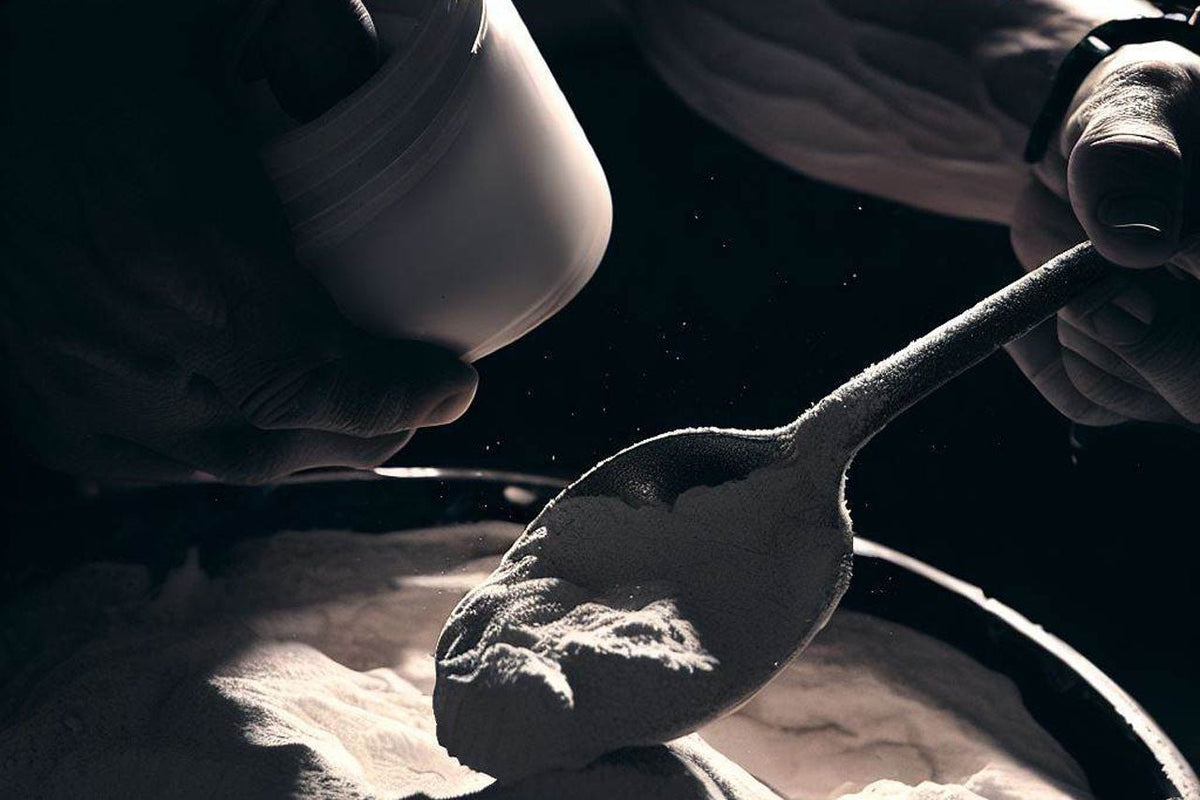
What Happens When You Stop Taking Creatine?
|
Time to read 5 min
|
Time to read 5 min
Creatine is a widely-used supplement in the world of fitness and bodybuilding. It's known for its ability to boost strength, power, and muscle mass, but what happens when you stop taking creatine? In this article, we will explore the ins and outs of creatine, its effects on the body, and what to expect when you decide to discontinue its use.
Creatine is a naturally occurring compound found in small amounts in certain foods, like red meat and fish, and is also produced by our bodies. It is stored in our muscles, where it is used as a quick source of energy during high-intensity activities like weight lifting, sprinting, or jumping.
When we supplement with creatine, we increase the amount stored in our muscles, which can help improve performance during short, intense bursts of exercise. The most commonly used form of creatine is creatine monohydrate, which has been extensively researched and proven to be safe and effective.
When you stop taking creatine, there are some potential side effects that you might experience. These can vary from person to person and can include:
When you stop taking creatine supplements, your body will begin to use up the excess creatine stored in your muscles. This process usually takes about 4-6 weeks, depending on factors such as your exercise routine, diet, and individual metabolism.
Once your creatine levels return to their natural baseline, you can expect some changes in your workout performance and physique. As previously mentioned, you might notice a decrease in your ability to perform high-intensity exercises, lose some water weight, and potentially experience a small amount of muscle loss.
| Effects of Stopping Creatine | Description |
| Decreased performance | Performance in high-intensity exercises might decline as creatine levels in muscles decrease. |
| Loss of water weight | Muscles may release the extra water they held during supplementation, leading to a slight decrease in weight. |
| Potential muscle loss | Some people may experience minimal muscle loss if they don't maintain their exercise routine and diet. |
| Temporary leaner appearance | Loss of water weight may result in a temporary leaner appearance, mainly due to water loss and not a significant change in body composition. |
| Impact on gains | Retaining gains depends on consistent strength training and a balanced diet. A slight decrease in strength and power is possible but can be minimized. |
When you supplement with creatine, it provides a range of benefits that can improve your workouts and overall fitness. These benefits include:
If you decide to stop taking creatine, there are steps you can take to minimize the potential loss of benefits. These include:
Try our tasty AF creatine gummies today
While creatine is considered safe for long-term use, some people might choose to cycle on and off the supplement or take breaks periodically. This can be done for various reasons, such as personal preference, budget constraints, or to give the body a break from supplementation.
There is no definitive answer as to whether you should take creatine forever, but it's essential to listen to your body and consult with a healthcare professional if you have any concerns.
As mentioned earlier, some people might experience a small amount of muscle loss when they stop taking creatine. This can occur if you don't maintain a consistent exercise routine and a balanced diet. It's important to note that any muscle loss would likely be minimal, and by continuing to prioritize strength training and proper nutrition, you can minimize this potential side effect.
When you stop taking creatine, your muscles will gradually lose the extra creatine stores built up during supplementation. As a result, you may experience a decrease in strength and power during high-intensity exercises. This is because creatine plays a significant role in providing a quick energy source for your muscles during these activities.
Once your creatine levels return to their natural baseline, you might notice a decline in your ability to perform at the same level as when you were supplementing.
There isn't a one-size-fits-all answer to this question, as individual responses to creatine supplementation can vary. Some people prefer to cycle creatine, taking it for several weeks or months and then taking a break before resuming supplementation. Others might choose to use creatine consistently without breaks. Ultimately, the decision to take time off from creatine should be based on your personal preferences, fitness goals, and how your body responds to the supplement.
When you stop taking creatine, you might lose some water weight as your muscles release the additional water they were holding onto during supplementation. This can lead to a temporary decrease in muscle volume, which might make you appear slightly more ripped, dryer, or leaner. However, it's important to remember that this effect is temporary and mainly due to water loss, not a significant change in body composition.
You may experience a slight decrease in strength and power, but by maintaining a consistent workout routine and balanced diet, most of your gains can be retained.
Creatine gains are not permanent. When you stop taking creatine, your muscles lose extra creatine stores in about 5 weeks, which can lead to reduced strength and power during high-intensity exercises.
There is no set duration for creatine supplementation. Some people cycle on and off, while others take it consistently. Consult with a healthcare professional to determine the best approach for your needs.
Missing 3 days of creatine won't have a significant impact on your performance or gains. However, it's important to resume supplementation and maintain consistency for optimal results.
